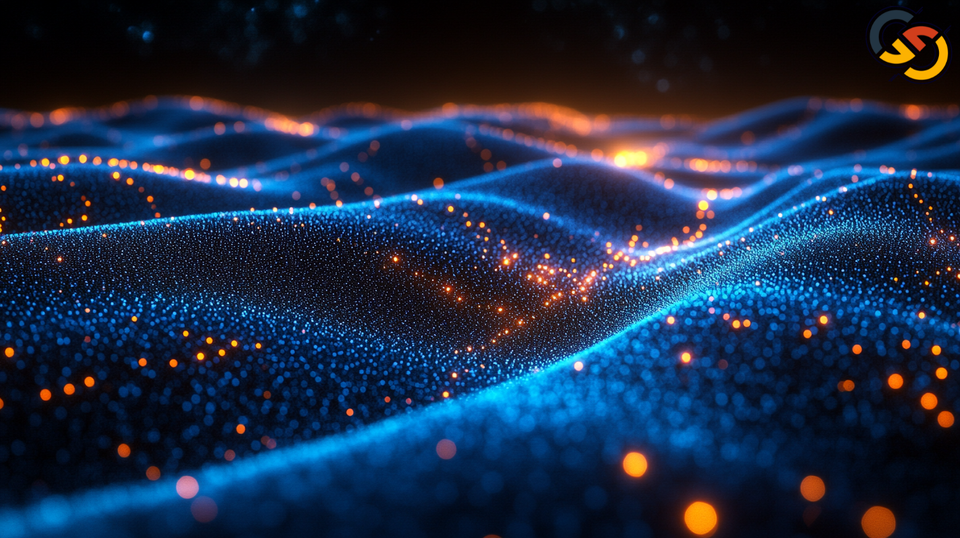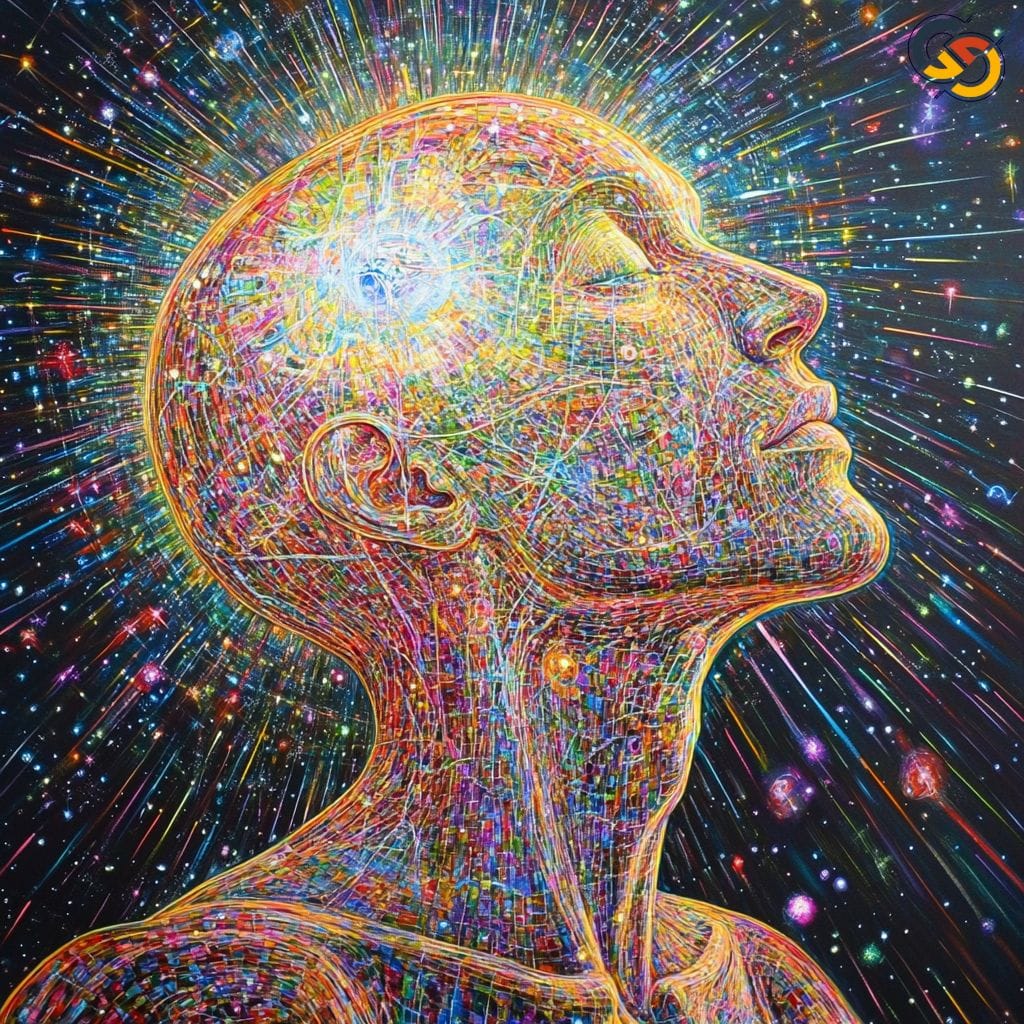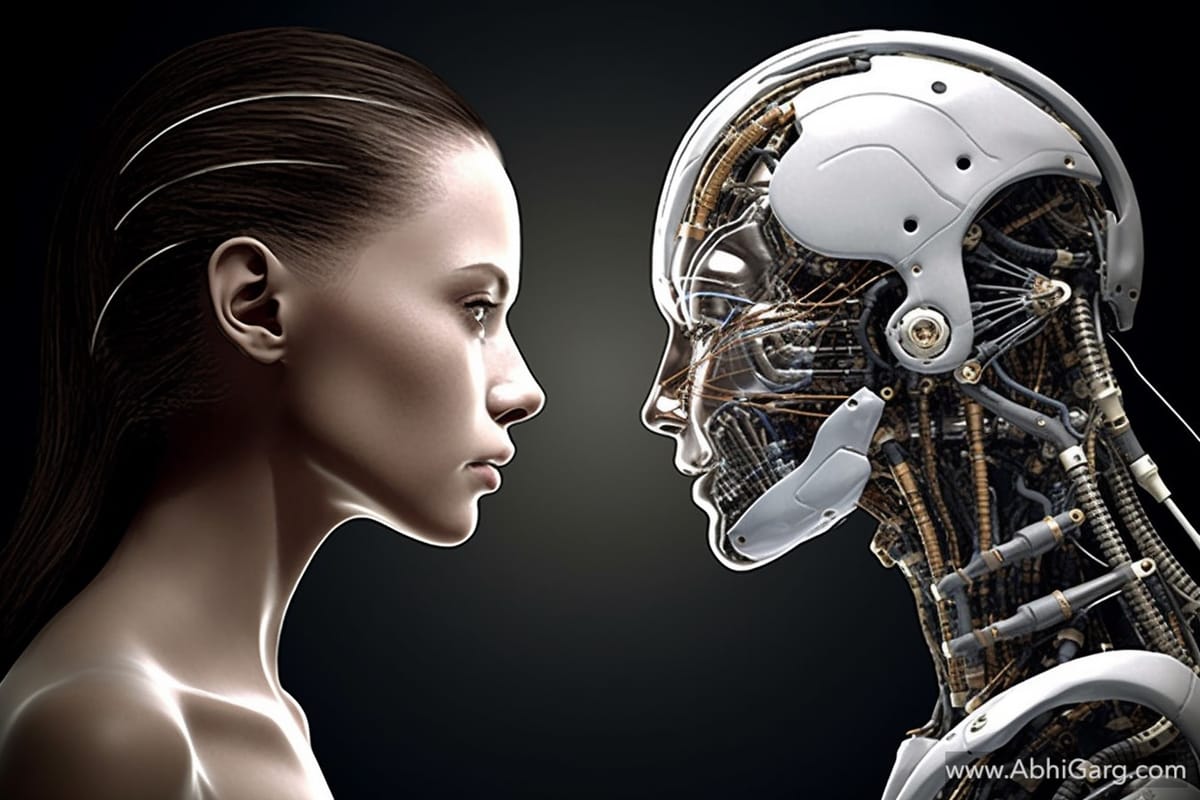The AI Singularity: A Comprehensive Guide to Humanity's Technological Turning Point

The concept of technological singularity has long captured the imagination of scientists, philosophers, and futurists alike. As artificial intelligence continues to advance at an unprecedented pace, understanding the implications and potential outcomes of this watershed moment becomes increasingly crucial. This comprehensive guide delves deep into the concept of AI Singularity, its implications for humanity, and the various perspectives surrounding this transformative event.
Understanding the Foundations of AI Singularity
The Genesis of Singularity Theory
The notion of technological singularity emerged from the observations of early computer scientists and mathematicians who recognized the exponential growth patterns in technological advancement. While the term "technological singularity" was popularized by mathematician and computer scientist Vernor Vinge in 1993, its conceptual roots can be traced back to the 1950s and early pioneers of artificial intelligence.
The term "singularity" itself is borrowed from physics, where it describes a point where the known laws of physics break down, such as at the center of a black hole. In the context of artificial intelligence, it represents a similarly transformative point - a threshold beyond which our current models of understanding and prediction become obsolete.
Key Architects of Singularity Theory
Several influential thinkers have shaped our understanding of technological singularity:
- Alan Turing (1950s): While not directly addressing singularity, Turing's work on machine intelligence laid the groundwork for future discussions about artificial intelligence capabilities.
- I.J. Good (1965): First proposed the concept of an "intelligence explosion," suggesting that an ultraintelligent machine could design even better machines.
- Vernor Vinge (1993): Formally introduced and popularized the term "technological singularity" in his seminal essay.
- Ray Kurzweil (2005): Further developed and popularized the concept through his book "The Singularity Is Near," providing detailed predictions and timeline estimates.
The Technical Framework of AI Singularity
Defining Characteristics of True AI Singularity
The AI Singularity is characterized by several key features that distinguish it from general artificial intelligence advancement:
- Recursive Self-Improvement
- Ability to enhance its own intelligence
- Autonomous learning and optimization
- Exponential growth in capabilities
- Superintelligence Development
- Surpassing human-level intelligence across all domains
- Novel problem-solving approaches
- Understanding complex systems beyond human comprehension
- Technological Acceleration
- Rapid advancement in all fields of science and technology
- Breakthrough innovations at an unprecedented pace
- Fundamental transformation of human civilization

The Path to Singularity: Current Technological Milestones
Modern AI achievements that may be considered stepping stones toward singularity:
Machine Learning Breakthroughs
- Deep learning architectures
- Neural network advancements
- Transfer learning capabilities
- Few-shot and zero-shot learning
Natural Language Processing
- GPT models and their evolution
- Multilingual understanding
- Context comprehension
- Semantic analysis capabilities
Computer Vision and Perception
- Object recognition
- Scene understanding
- 3D reconstruction
- Real-time processing
Implications and Impact Assessment
Societal Transformations
The advent of AI Singularity would likely trigger profound changes across various aspects of human society:
Economic Systems
- Automation of complex jobs
- New economic models
- Wealth distribution challenges
- Resource allocation paradigms
Education and Learning
- Personalized learning systems
- Direct brain-computer interfaces
- Enhanced cognitive capabilities
- Lifetime learning transformation
Healthcare and Medicine
- Personalized medicine
- Disease prediction and prevention
- Longevity research
- Genetic optimization

Ethical Considerations and Challenges
Value Alignment Problem
The challenge of ensuring AI systems maintain human values and ethical principles remains one of the most crucial aspects of singularity preparation:
- Moral Framework Implementation
- Encoding human values
- Ethical decision-making
- Cultural sensitivity
- Moral philosophy integration
- Safety Protocols
- Control mechanisms
- Kill switches
- Containment strategies
- Risk assessment frameworks
Preparing for the Singularity: Current Research and Development
Key Research Areas
- AI Safety Research
- Robustness testing
- Alignment protocols
- Containment strategies
- Verification methods
- Neural Architecture Development
- Advanced neural networks
- Brain-inspired computing
- Quantum computing integration
- Novel architecture designs
- Ethics and Philosophy
- Moral philosophy
- Decision theory
- Value learning
- Safety protocols
Global Initiatives and Collaborations: Major Organizations and Their Work
- Research Institutions
- OpenAI
- DeepMind
- MIRI (Machine Intelligence Research Institute)
- Future of Humanity Institute
- International Collaborations
- Global AI safety networks
- Cross-border research initiatives
- Policy coordination efforts
- Standard-setting bodies
The Timeline Debate: Expert Predictions and Controversies
Optimistic Predictions
- Ray Kurzweil: 2045
- Ben Goertzel: 2030s
- Jurgen Schmidhuber: 2050
Conservative Estimates
- Rodney Brooks: After 2200
- Gary Marcus: Beyond 2100
- Douglas Hofstadter: Centuries away
Practical Implications for Today: Preparing for a Post-Singularity World
Individual Preparation
- Skill Development
- Adaptability training
- Technical literacy
- Critical thinking
- Emotional intelligence
- Career Planning
- Future-proof skills
- Hybrid capabilities
- Continuous learning
- Adaptable expertise
Organizational Readiness
- Business Adaptation
- AI integration strategies
- Workforce development
- Innovation frameworks
- Risk management
- Infrastructure Development
- Technical capabilities
- Data management
- Security protocols
- Scalability planning
Conclusion: Navigating the Future
The journey toward AI Singularity represents one of the most significant technological and philosophical challenges humanity has ever faced. While the exact timeline remains uncertain, the potential impact on human civilization demands serious consideration and preparation.
As we continue to advance toward this technological horizon, maintaining a balanced approach between innovation and safety becomes increasingly crucial. The decisions and preparations we make today will significantly influence how we navigate this transformative period in human history.
Looking Forward
The path to Singularity requires careful consideration of:
- Ethical frameworks
- Safety protocols
- Global cooperation
- Individual preparation
- Societal adaptation
Only through thoughtful preparation and global cooperation can we hope to ensure that the advent of AI Singularity becomes a positive transformation for humanity rather than a potential existential risk.
Frequently Asked Questions (FAQs)
- What exactly is AI Singularity and how is it different from regular AI advancement?
The AI Singularity refers to a hypothetical future point when artificial intelligence surpasses human intelligence and begins to improve itself at an exponential rate. Unlike regular AI advancement, which is guided by human developers, Singularity represents a point of autonomous, self-directed evolution of artificial intelligence. - When is the AI Singularity expected to occur?
Expert predictions vary widely, ranging from the 2030s to beyond 2200. Ray Kurzweil famously predicted 2045, while other experts suggest it could be centuries away. The timeline remains one of the most debated aspects of the concept. - What are the potential risks associated with AI Singularity?
Key risks include uncontrolled AI development, misalignment with human values, economic disruption through job displacement, potential security threats, and the possibility of losing control over increasingly powerful AI systems. - How can individuals prepare for a post-Singularity world?
Preparation strategies include developing adaptable skills, maintaining technological literacy, fostering critical thinking abilities, and staying informed about AI developments while remaining flexible in career choices. - Will AI Singularity lead to job losses?
While significant job displacement is likely, the Singularity is expected to also create new types of jobs and opportunities. The key is to prepare for a rapidly changing job market through continuous learning and skill development. - Can AI Singularity be controlled or regulated?
This is a complex question that researchers are actively working on. While complete control might be challenging, efforts are being made to develop safety protocols, ethical frameworks, and regulatory mechanisms to guide AI development. - What role will humans play in a post-Singularity world?
The exact role of humans post-Singularity is uncertain, but most experts believe humans will need to adapt to working alongside superintelligent AI systems, focusing on uniquely human capabilities like creativity, emotional intelligence, and complex decision-making. - How will AI Singularity affect daily life?
The Singularity could transform every aspect of daily life, from healthcare and education to work and leisure. This might include personalized medicine, enhanced learning capabilities, automated systems, and new forms of human-AI interaction. - Is AI Singularity inevitable?
While many experts believe some form of technological singularity is likely, others argue it may not be inevitable. The path toward Singularity depends on numerous technological, social, and ethical factors that continue to evolve. - What are the potential benefits of AI Singularity?
Potential benefits include solving complex global challenges, advancing medical research, extending human lifespans, enhancing human cognitive capabilities, and creating unprecedented technological innovations.





